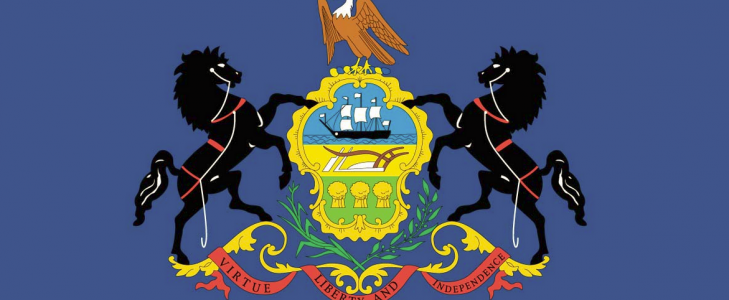If we’re judging the current success of U.S. iGaming by staggering projections made a couple of years ago, then the operation has disappointed so far. New Jersey took in just over $122 million in 2014 – way off the $1 billion prediction that Governor Chris Christie envisioned. And Nevada online poker didn’t even earn 10% of the revenue that New Jersey did – not exactly a victory when you consider how Nevada projected $70 million in annual revenue.
Given these figures, many gaming enthusiasts are looking for something that could turn the tide. And with Pennsylvania now having an online poker bill on the table, they could be the ones to create a dramatic change in the U.S. online gaming market. Keep reading as we discuss the three reasons why this is the case.
1. Pennsylvania is the sixth-largest state
We’re going to get the most-obvious point of the way first here; the Keystone state has a population of 12.8 million people. Sure, this isn’t California’s 38.8 million population that iGaming companies keep salivating over. But it’s 30% larger than the 8.94 million people living in New Jersey – currently the biggest of the three states allowing online gaming. The other two states, Nevada (2.84m) and Delaware (936k) are almost insignificant players in the market right now. Pennsylvania’s entrance would immediately double the potential player pool and, with interstate poker pacts, give the other three states a liquidity boost.
2. PokerStars is currently eligible
State Rep. John Payne, who introduced the Pennsylvania online poker bill, did not include any bad-actor language. So it seems like PA is the first state that might actually give PokerStars a realistic shot at entering their iGaming market. This would be huge simply for the fact that Stars is the world’s largest online poker site. Furthermore, they would cause other operations to step their game up and offer better software, promotions and customer service. Additionally, PokerStars would put a massive marketing effort into Pennsylvania while drawing more recreational players to the pool.
3. Pennsylvania could be the model of success that’s needed
Many states are taking a wait-and-see approach with regard to whether they’ll legalize iGaming. And as mentioned before, America’s online gaming operation has largely failed to meet lofty expectations. Never mind that these projections were too high to begin with because several states won’t get involved until they see a precedent of success. Well, Pennsylvania could finally be this model that everybody’s looking for since they have a large population, an established land-based gaming industry and the ability to link up with Delaware, New Jersey and Nevada.
Assuming PA does legalize online poker and do well, then we could see a domino effect where other states follow suit. But first thing’s first, Pennsylvania needs to pass Payne’s bill.
